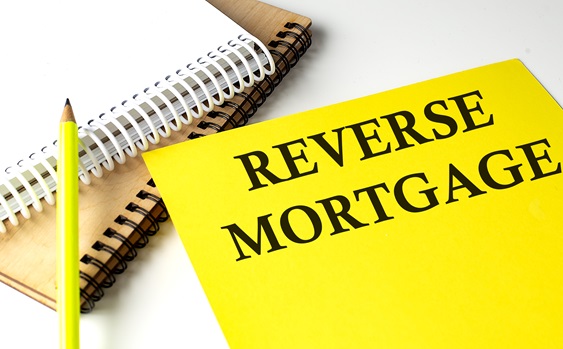
A reverse mortgage have become an increasingly popular financial tool for older homeowners looking to tap into their home equity. And while they can offer numerous benefits, it’s crucial to understand the facts and figures associated with them. So, let’s delve into
- what reverse mortgages are
- how they work
- the essential details you need to know
What Is a Reverse Mortgage?
A reverse mortgage is a type of loan available to homeowners aged 62 and older. It allowing them to convert part of the equity in their home into cash. Moreover, unlike a traditional mortgage, where the borrower will make payments to the lender every month, a reverse mortgage pays the borrower. Additionally, the borrower repays the loan once they sell off the house, move out of it permanently, or pass away.
Types of Reverse Mortgages
There are three main types of reverse mortgages:
Home Equity Conversion Mortgages (HECMs): The Federal Housing Administration (FHA) covers these types of loan and are the most common type of reverse mortgage. Furthermore, you can use HECMs for any purpose.
Proprietary Reverse Mortgages: Companies that develop them are backing these loans . This is for homeowners with higher-valued homes.
Single-Purpose Reverse Mortgages: Some state and local government agencies and nonprofit organizations offer these loans. Additionally, they are the least expensive option, but they are only for a single purpose specified by the lender, such as home repairs or property taxes.
How Does a Reverse Mortgage Work?
To qualify for a reverse mortgage, you must be at least 62 years old and own your home outright or have a substantial amount of equity. Additionally, the home must be your primary residence. The amount you can borrow depends on various factors, including your age, the home value, and current interest rates.
Key Figures to Consider
Age Requirement: The minimum age to qualify for this type of loan is 62. Furthermore, the older you are, the more you can typically borrow.
 Home Value: The amount you can borrow is also based on the appraised value of your home. Moreover, the higher the value, the more you can potentially borrow.
Home Value: The amount you can borrow is also based on the appraised value of your home. Moreover, the higher the value, the more you can potentially borrow.
Interest Rates: Current interest rates play a significant role in determining the amount available to you. Additionally, lower interest rates generally allow for more substantial loan amounts.
Fees and Costs: This type of loan comes with various fees and costs. Furthermore, these costs can add up, so it’s essential to understand them fully before proceeding.
Benefits of a Reverse Mortgage
No Monthly Payments: One of the most significant advantages of this type of loan is that there are no monthly mortgage payments required. Additionally, this can provide substantial financial relief for retirees living on fixed incomes.
Access to Home Equity: A reverse mortgage allows you to access your home equity without selling your home. Moreover, you can receive the funds as a line of credit, monthly payments, lump sum, or a combination of these options.
Tax-Free Income: The funds you receive from this type of loan are generally tax-free because they are considered loan proceeds, not income. Additionally, this can be a significant advantage for managing retirement finances.
Retain Home Ownership: With a reverse mortgage, you will and can live in it provided that you meet the requirements of the loan. Moreover, this includes maintaining the property, paying property taxes, and homeowners insurance.
Potential Drawbacks and Considerations
Accumulating Interest: Since you do not make monthly payments on a reverse mortgage, the interest on the loan balance continues to accrue over time. Additionally, this means the loan balance can grow significantly, potentially leaving less equity in your home for your heirs.
Costs and Fees: Myrtle Beach reverse mortgages come with various fees and costs that can be substantial. Furthermore, these costs are usually added to the loan balance, reducing the amount of equity available.
Impact on Inheritance: Because the loan must be repaid when you sell the home, move out, or pass away, your heirs may need to sell the home to repay the loan. Additionally, this could impact the inheritance you leave behind.
Home Maintenance: To keep the loan in good standing, you must maintain the property, pay property taxes, and keep homeowners insurance current. Moreover, failing to do so can result in the loan becoming due and payable.
Who Should Consider a Reverse Mortgage?
This type of loan can be a good option for homeowners who need additional income during retirement and wish to stay in their homes. Additionally, they are beneficial for those who have significant home equity and want to access it without selling the property. However, it’s crucial to weigh the costs, fees, and potential impact on your estate before deciding.
Reverse mortgages in Myrtle Beach offer a way for older homeowners to tap into their home equity and improve their financial situation during retirement. Furthermore, understanding the facts and figures associated with these loans is essential to make an informed decision. If you’re considering a reverse mortgage, it’s advisable to consult with a financial advisor or housing counselor to ensure it aligns with your long-term financial goals.
Are you ready to explore how a reverse mortgage could benefit your retirement? Contact David Stacy Reverse Mortgage Specialist today to learn more and see if it’s the right option for you. Make informed decisions for a financially secure future!
David Stacy Reverse Mortgage Specialist
Myrtle Beach, SC 29577
(843) 491-1436
https://www.reverse-info.com
We serve all of Horry County including: North Myrtle Beach, Carolina Forest, Socastee, Forestbrook, Conway, Surfside Beach, Little River, Myrtle Beach, Forestbrook

No comments:
Post a Comment